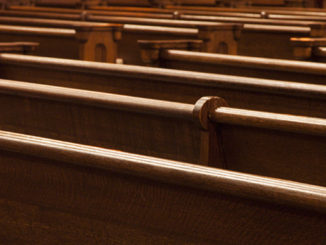
I was coaching a group of pastors and was asked a question I’ve encountered but never really answered. It’s a question that seems to come up frequently these days. In fact, I think it’s a question many churches need to consider.
The reality is some churches have had their community leave them. The community changed and they no longer look like their community demographically.
To avoid confusion, I’m not talking spiritually. The church never fully reflects the community there. The church is usually counter-cultural in terms of how we reflect God’s standards.
I’m strictly talking demographically. That’s the one scenario that triggered this question. And the background. This church had for years been overwhelmingly a white, middle class church. The community is presently less than 20 percent white. The dominant demographic is Hispanic.
The question was: How can we grow now that we don’t represent the demographics of our community?
Great question. I’m not sure my answer was what he expected, but I think it’s a good answer. (If I can be bold and say that.) Before I share my answer, you need to know I’m a realistic, bluntly honest person. Plus, I didn’t think I could tell him or the church what to do. I could only help them consider the options.
I think he was asking the wrong question—at least the wrong initial question.
I think the question a church in this situation has to ask is what they are going to do—not how they are going to do whatever they do. More importantly, the why behind what you do will ultimately fuel the church to achieve it.
Furthermore, I went on to advise him that I believe the church needs to answer this question collectively—or at least more lay leadership needs to be involved in the answer. Whatever the church decides to do will determine the future of the church. Pastors may come and go, but those in the church will likely have to live with the answer for the remaining life of the church.
THERE ARE REALLY ONLY THREE OPTIONS.
1. Become Like the Community.
You can strive to represent your community again. This may require staffing and programming changes. You’ll have to ask many more questions, such as what the community needs and how best to address them. You’ll need to engage current community leaders—and this is not just elected leaders, but community activists and people who know the community. It won’t be easy, and it will challenge your people, but it’s a noble goal. It’s likely the community needs more churches that do reflect the community. But getting there won’t be easy.
2. Leave the Community.
You can relocate. You can relocate to a demographic that better represents who the church is now. Some will disagree, but I don’t believe this decision would mean you don’t care for the community where you are now. The church is just different. You should know this can be an expensive option because you likely may not be able to sell your current facilities for what it will take to relocate. Possibly, you can. Or, you could be very kingdom-minded and help a church that represents the community established in your existing facility by gifting it to them or significantly discounting the price.
3. Slowly Die in the Community.
This is an option. It wouldn’t be my favorite, but it is an option. It could actually be a viable option if, at the end of your time, you realize your building is going to be better used by a church that does represent the community. You could begin to share your facility with a church like that now and coexist for the foreseeable future, and then, when your church officially closes its doors, the new church inherits the building.
I realize there are strong opinions with each one of these answers. And none of the answers come easy. Frankly, to me, it doesn’t matter as much which you choose—as much as it does that you do.
We need churches of all kinds in all kinds of communities. I firmly believe, however, that answering the question of what you are going to do should ultimately determine the next steps you take. As an organizational guy, I can tell you trying to address the how before you determine the what and why is almost always wasted energy. With so much kingdom building needed, who has time for that?
This article originally appeared on RonEdmondson.com.



